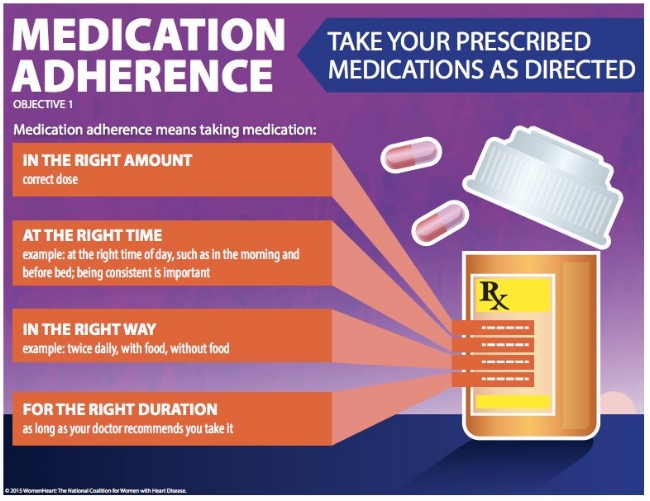Medication adherence, also referred to as compliance, is two sided: Do patients… 1). Get their prescriptions? 2). Take prescriptions as directed?
“As directed” means in the right amount, at the right time, in the right way (with/without food), and for the right duration.
The US spends a lot of money on healthcare, no surprise. In the 2017 fiscal year, the United States’ bill was $3.5 trillion, double any other country.1
Let’s make something better. Let’s focus on one aspect: medication adherence.
Medication non-adherence costs the US around $300 billion a year and the repercussions, such as readmittance, are half a trillion.

Tangible efforts that have proven to show increase in compliance:
- Prescription synchronization (refilling all prescriptions once a visit)
- Simplified labeling (dosage directions)
- Combining prescriptions into one package (Pillpack,Care/of)
- 90-day prescriptions (reducing pharmacy visits)
- Generic use (lower cost)
- Refill reminders via smartphone applications
- Home delivery programs, such as the recent ScriptDrop
- Family support systems
- Counseling by pharmacists
- Patient saving programs expansion (Good Rx)
Non-compliance happens for a variety of reasons e.g. forgetfulness, cost (co-pay and out-of-pocket), multiple steps, multiple medications, a high-deductible plan. Often, “the sickest people are the most non-adherent.”3
Like CVS said, medication adherence is not simple; it’s a complex behavioral challenge and, “There are many other data points we are missing about the patient that can provide context (e.g., wearables, Internet of Things, sensors, self-reported measure).”4
Data is more abundant, but the transformation and translation is what matters.
EHR patient portals were adopted in acceleration with the federal incentive program. 70% of prescriptions are submitted electronically through EHR systems and have increased access to data to understand compliance.
EHR systems allow doctors to add notes if a patient is continually non-adherent and can place necessary strategies in place.
The opportunity to improve medication adherence is clear and there is still work to do. To us, this sounds like an opportunity for innovation. Three of our portfolio companies, VendRx, ScriptDrop, and Pillsy are on the forefront.
Trent Jefferies, CEO of VendRx (JSF ‘18), believes that managing information will be the key to the future of compliance, “Knowing that your patient is non-adhering is one thing, but knowing who is following up is another. Shifting to blockchain technology does not solve the issue of human nature but solves the knowledge/whereabouts of data.”
VendRx innovates from this issue by offering in-office kiosk to allow patients to make medication decisions at point-of-care. Patients can choose automatic medication vending, pre-paying to pick up at the pharmacy, or automated home delivery—all of which are combating the non-compliance risks and statistics.
ScriptDrop (JSF ‘16) works directly with pharmacies to provide a delivery service that is intuitive to their workflow. This means no additional apps and costs to patients. Top-of-mind applies especially to medication adherence. Founder and CEO Nick Potts understands that going to the pharmacy can quickly fall on the back burner and the number of prescriptions abandoned is costly. ScriptDrop provides a solution.
Expanding on part 2 of medication adherence- taking the prescription as directed, Jeff LeBrun CEO and Founder of Pillsy (JSF ’17) created a smart pill bottle that:
-
Automatically tracks doses by detecting when bottle is opened or closed
-
Sends reminders when you forget a dose and warns of double-dose
-
Syncs to the Pillsy app; view your dose history in the mobile app (iOS and Android)
-
Caregiver can receive notifications when a loved one misses a dose
Point-of-care kiosk, at-home delivery, and smart pill bottles… innovation. We are excited about what our portfolio is doing and the traction they have gained in the market.
What are your thoughts on the root causes, current landscape, and future horizon of medication adherence? We’d love to hear your thoughts! Respond below.
Another topic to consider: Amazon’s acquisition of Pillpack. How does an online platform for an at-home, insurance compliant, medication subscription service affect adherence? An in-depth look at the what it could mean to the future of pharmacy, to retail, and to healthcare by Jeff LeBrun, Pillsy is a must-read.
Sources:
1 http://www.crfb.org/papers/american-health-care-health-spending-and-federal-budget
2 http://www.pharmtech.com/packaging-improves-medication-adherence
3https://cvshealth.com/thought-leadership/cvs-health-research-institute/insights-medication-adherence
4 https://medcitynews.com/2018/07/medication-adherence-is-dead-long-live-medication-adherence/



